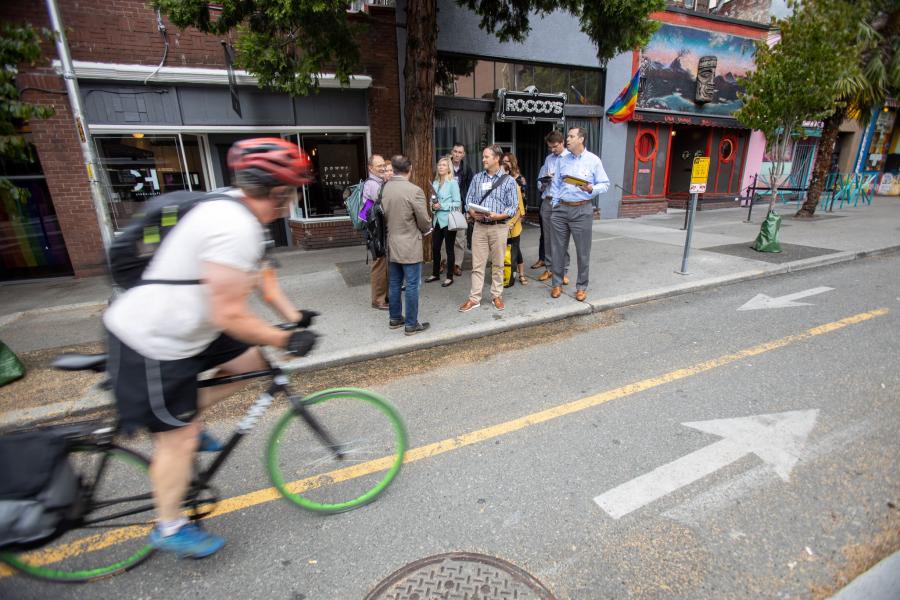
JANUARY 2, 2020 — Belltown dwellers will soon see on city streets some new technologies that could reduce congestion and make goods delivery more energy-efficient and productive, thanks to our Technology Integration to Gain Commercial Efficiency for the Urban Goods Delivery System, Meet Future Demand for City Passenger and Delivery Load/Unload Spaces, and Reduce Energy Consumption research funded through a U.S. Department of Energy grant.
Urban Freight Lab researchers selected an eight-block grid as the project pilot test location and will soon implement two new approaches:
- Common carrier parcel locker systems (open to all retails and delivery firms) to be placed on public and private properties near load/unload spaces and transit stops, and
- A smartphone app using sensor technologies, machine learning, and artificial intelligence to predict street parking availability and notify delivery drivers.
UFL and Pacific Northwest National Laboratory (PNNL), with the support of the Seattle Department of Transportation (SDOT) and their other partners will develop, pilot test, and (using a learn/do approach) improve upon technologies supporting new operational strategies to optimize use of urban load/unload space, as well as business efficiencies in the final 50 feet of the goods delivery system.
This is a timely project as cities are looking for new strategies to accommodate the rapid growth of e-commerce, ride-hailing services, connected and autonomous vehicle technologies, and fast-growing cities. Online shoppers want the goods delivery system to bring them whatever they want, where they want it, in one to two hours. At the same time, many cities are replacing goods delivery load/unload spaces with transit and bike lanes. Cities need new load/unload space concepts supported by technology to make the leap to autonomous cars and trucks in the street, and autonomous freight vehicles in the final 50 feet of the goods delivery system.
READ MORE:
- About the project: Technology Integration to Gain Commercial Efficiency for the Urban Goods Delivery System, Meet Future Demand for City Passenger and Delivery Load/Unload Spaces, and Reduce Energy Consumption
- Year One Progress Report (October 1, 2018 – December 31, 2019)
About the Urban Freight Lab (UFL): An innovative public-private partnership housed at the Supply Chain Transportation & Logistics Center at the University of Washington, the Urban Freight Lab is a structured workgroup that brings together private industry with City transportation officials to design and test solutions around urban freight management.
About the Final 50 Feet Research Program: The Urban Freight Lab’s Final 50 Feet research program designs and tests solutions to improve delivery at the end of the supply chain—beginning at a load/unload parking space at the curb, in an alley, or in a private loading bay, and maneuvering through sidewalks, intersections, and building security, and ending with the final customer. This final segment of the supply chain is the most difficult and expensive (estimated at between 25-50% of total supply chain transportation costs).